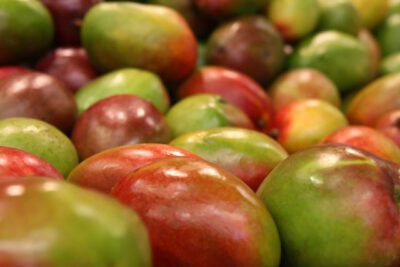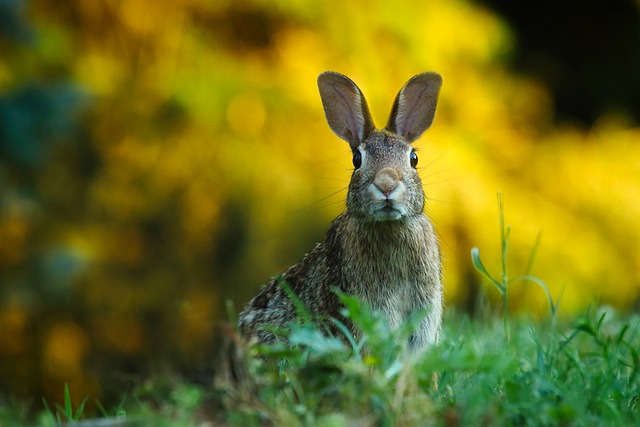



When it comes to feeding rabbits, it is important to consider several factors to ensure they receive the proper nutrition. These factors include the rabbit's age, weight, activity level, and overall health. It is also important to note that rabbits are herbivores and their diet should consist mainly of hay, grass, vegetables, and a small amount of pellets.
Hay is an essential part of a rabbit's diet and should be available to them at all times. It provides the necessary fiber for their digestive system and helps wear down their teeth, which continuously grow. Timothy hay is the most commonly recommended type of hay for rabbits, but other options such as orchard grass or meadow hay can also be included.
Rabbits should consume approximately one bundle of hay per day, which is roughly equivalent to their body size. It is important to ensure that the hay is fresh, clean, and free from mold or dust. If the rabbit is not consuming enough hay, it may be necessary to gradually increase the amount or try different types of hay to entice them.
In addition to hay, rabbits can also be given access to fresh grass. This can be provided by allowing them to graze in a safe, pesticide-free area or by offering them freshly cut grass. Grass provides additional nutrients and variety to their diet.
Vegetables and fruits should make up a significant portion of a rabbit's diet. These should be introduced gradually and in small quantities to avoid digestive upset. Leafy greens such as romaine lettuce, spinach, kale, and cilantro are excellent choices. Other vegetables such as carrots, bell peppers, and broccoli can also be included.
It is important to note that not all vegetables and fruits are safe for rabbits. Some can be toxic or cause digestive issues. Avoid feeding them onions, garlic, potatoes, rhubarb, and avocados. Fruits should be given sparingly due to their high sugar content. Safe options include apples, strawberries, blueberries, and bananas.
A general guideline is to offer rabbits about 1 cup of vegetables per 2 pounds of body weight per day. This can be divided into two or three servings throughout the day. It is important to wash all vegetables thoroughly and remove any pesticides or dirt before feeding them to the rabbits.
Pellets are a concentrated source of nutrition and should be fed in moderation. They should make up only a small portion of a rabbit's diet. Look for high-quality pellets that are specifically formulated for rabbits. Avoid pellets that contain seeds, nuts, or dried fruits, as these can be high in fat and sugar.
A general guideline is to offer rabbits about 1/8 to 1/4 cup of pellets per 6 pounds of body weight per day. It is important to monitor the rabbit's weight and adjust the amount of pellets accordingly. If the rabbit is overweight, reduce the amount of pellets. If the rabbit is underweight, increase the amount of pellets.
Pellets should be stored in a cool, dry place to maintain their freshness. It is also important to check the expiration date and discard any expired pellets.
Water is essential for rabbits to stay hydrated and maintain proper bodily functions. Fresh, clean water should be available to them at all times. It is recommended to use a water bottle with a sipper tube to prevent contamination and spillage. The water bottle should be checked daily to ensure it is working properly and refilled as needed.
Rabbits typically consume about 50-150 ml of water per kilogram of body weight per day. However, their water intake may vary depending on factors such as temperature, diet, and activity level. It is important to monitor their water consumption and ensure they are drinking enough.
Treats should be given sparingly and should not exceed 5% of a rabbit's daily food intake. Treats can include small pieces of fruits, vegetables, or specially formulated rabbit treats. It is important to choose treats that are safe and healthy for rabbits. Avoid giving them sugary or high-fat treats, as these can lead to obesity and other health issues.
Treats can be used as a form of enrichment or as a reward during training sessions. It is important to remember that treats should not replace the rabbit's regular diet and should be given in moderation.
It is important to monitor a rabbit's weight and overall health regularly. If a rabbit is gaining or losing weight, it may be necessary to adjust their daily food intake. If a rabbit is overweight, reducing the amount of pellets and treats and increasing their exercise can help them lose weight. If a rabbit is underweight, increasing the amount of pellets and offering more high-calorie vegetables and fruits can help them gain weight.
It is also important to observe the rabbit's behavior and digestion. If a rabbit is not eating, has diarrhea, or shows any signs of illness, it is recommended to consult a veterinarian. They can provide guidance on the rabbit's diet and recommend any necessary adjustments or supplements.
In conclusion, providing the proper daily amount of food for rabbits is essential for their overall health and well-being. A balanced diet consisting of hay, grass, vegetables, a small amount of pellets, and fresh water will help ensure that rabbits receive the necessary nutrients for a healthy life.
Leave a Reply
Related posts